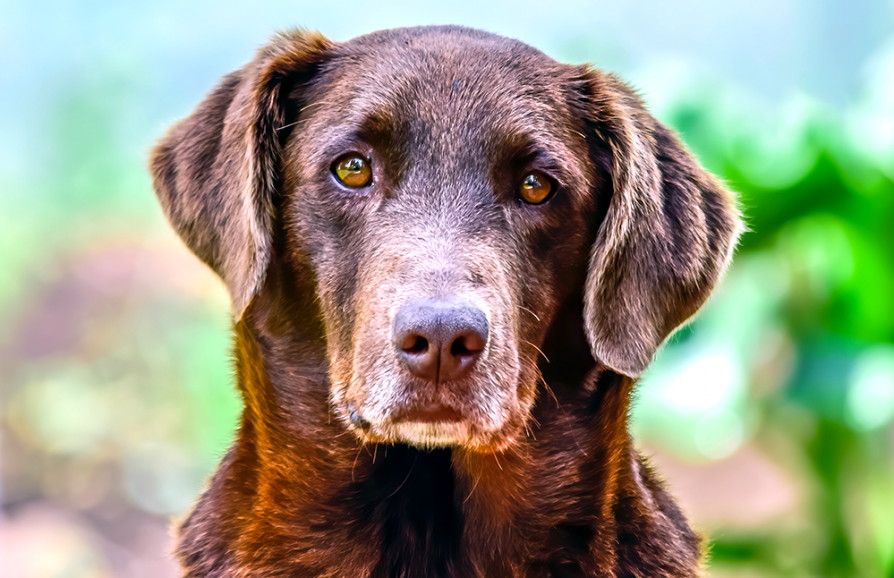Ageing in pets: Common diseases
- July 26th 2021

Ageing is a natural process, and brings with it a host of age-related joint issues and diseases. No matter how young our pets may be at heart, their bodies are definitely getting older. Here’s what to look out for as your pet ages, and how to help them through these common diseases.
Arthritis
Arthritis is the word we use to refer to joint degeneration, which leads to pain as one ages. You can recognize the signs quite easily in your dogs: they’ll walk slower, and for shorter periods of time. Climbing up the stairs will be difficult for them, and they’ll tend to avoid following you to any upper floors. They run more slowly as well – you can almost see the stiffness in the joints of your once lithe pup.
Arthritis also causes the joints to grow inflamed, so you’ll see your pet often licking their joints to soothe them. Their gait will change as well – their legs will be stiffer and they will take smaller steps.
Arthritis is normal, and can happen to any canine or human. Its main effects are pain – although your dog has no way of really telling you how much pain they’re in, except whimpering – and a reduction in your beloved dog’s overall activity level. We don’t blame them for not wanting to play; you wouldn’t too if your knees hurt.
The good news is that arthritis can be managed. It cannot be cured, but there are pain medications to alleviate the effects of the disease. If you suspect your pet has arthritis, check with your vet on what medication they recommend to help with the pain.
Here are a few more ways in which you can make your pet comfortable:
1.
If you
live in a two-floor house or apartment, make sure you move all their bedding
and food to the lower floor to minimize the need for them to walk up and down
the stairs.
2.
Buy them
an orthopaedic bed that can help with their joint paint and ensure they sleep
more comfortably at night.
3.
If you
have a porch or steps to your front door, buying a ramp may help to ease your
dog through these tricky areas. Cars that are elevated are also difficult for
them to jump into or climb into, so carry them to their dog seats to make
things easier.
4.
If you
live in a colder part of India, like Delhi in winters and Bangalore, then you
can buy your dog a heated bed. This will keep them warm and soothe their
joints.
Dementia
Like humans, older dogs can also develop dementia. This cluster of diseases is called canine cognitive dysfunction in dogs, and the common symptom is similar to Alzheimer’s. The disease affects canines in the same way it affects humans—it eats into their memory, learning and comprehension abilities.
So what does that mean for your senior dog? It means they’re slower to learn. Ever heard the phrase: “You can’t teach an old dog new tricks?” Well, it’s based in reality. Your senior dog will just struggle to comprehend and pick up as clearly as they did when they were pups, which means they’re not acing those mind games anytime soon.
They will also start to forget. You usually see this as a form of disorientation. Your dog will begin wandering around the house looking lost. They may seem unable to find the kitchen or their bed, they may be baffled by objects they’ve encountered a thousand times in their lives, and they may look confused about why they’re walking around in the first place. Often, you’ll find them standing in a spot, just unsure of why they’re there.
Alzheimer’s can also present itself in the form of anti-social behaviour or forgetting faces. Your dog may start to withdrew into themselves, preferring their own company to playing with family or interacting with other canines. They may also start forgetting people, although they rarely forget their pet parents. In times like these, your job as pet parents is to be as comforting and loving as possible: you are their friendly face in a world that’s rapidly turning alien.
Canine cognitive dysfunction can also lead to a disruption in your pet’s
sleep cycle, which means they may wake up more often in the night and have
trouble going to sleep.
Cancer
It’s not uncommon for pets to develop cancer in their old age. It can be any type of cancer: skin, stomach, liver, lungs. Cancers can be treated by operations, and by therapy – it just depends on how early you’ve caught the cancer, and how far it has spread.
It goes without saying that catching the cancer early is the best case scenario. Always be on the lookout for any lumps or bumps on your pet’s skin, and if you find any, take them to the vet immediately to have them checked out. Make sure you schedule regular checkups and screenings with your vet so that you’re testing your pet regularly for cancer and checking to make sure they’re okay.
Other common diseases
Arthritis, dementia and cancers are the three big types of diseases that can affect your pet. Here’s a list of other common afflictions:
·
Diabetes
·
Obesity
·
Hearing
and vision loss
·
Heart
problems
·
Gastro-intestinal
issues
· Oral infections like gingivitis and tooth decay
The best way to take care of your dog as they age is to make sure you’ve scheduled regular health checkups to screen for any diseases and warn about any abnormalities early. Should your pet contract any of the above diseases – which may happen as they grow older – chat with your vet about the best treatment plan that takes into account your pet’s activity level, diet, and lifestyle.
Comments
No posts found
